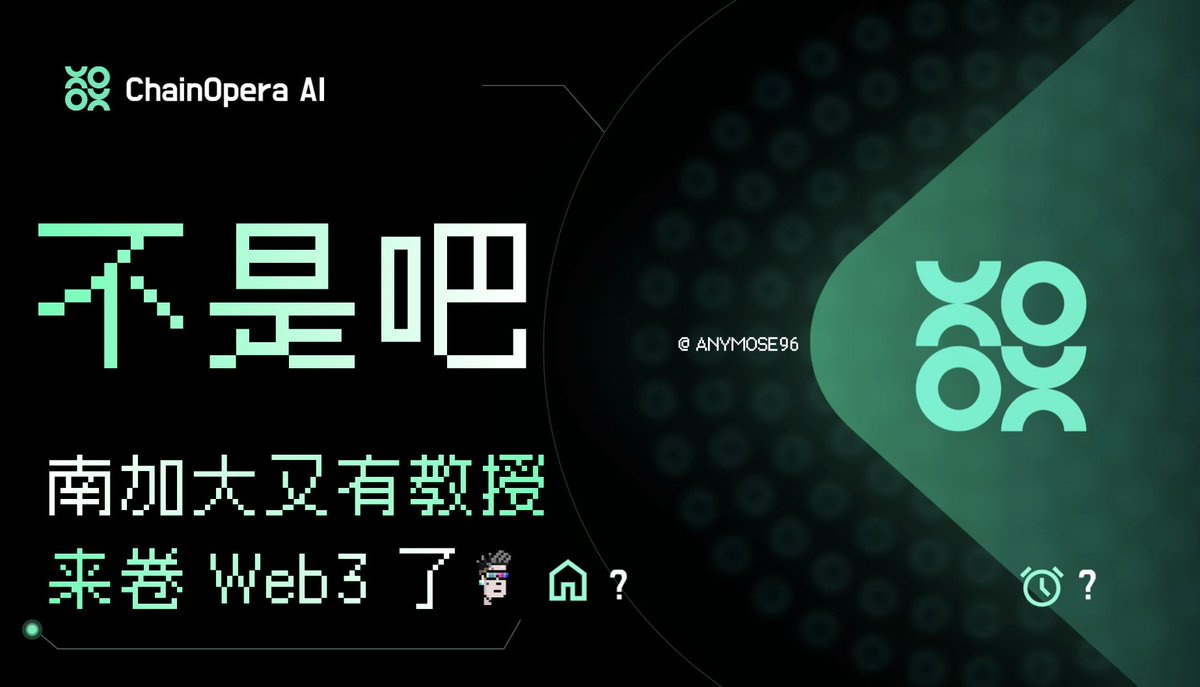No way, another professor from USC is getting into Web3!
Sahara has performed exceptionally well after the TGE, and I previously introduced the founder Sean Ren, who became a USC professor at a young age. Not only is he technically skilled, but he also has a solid academic foundation.
Now, another dean professor from USC, Salman Avestimehr, along with his student Dr. Aiden He, is also getting involved.
Let’s dive in!
⬇️
If there are still some rough players in the blockchain space, to be honest, there are almost no commoners in AI. It’s unavoidable; the industry needs research to drive it, and transforming academic achievements into commercially viable products is the shortest path to technological innovation, especially prevalent in the Bay Area.
When it comes to Salman Avestimehr and Aiden He, not many people in the Web3 circle know them, but in the AI circle, even if you don’t know them, you’ve probably heard of or used FedML. FedML is one of the most widely used open-source machine learning frameworks, focusing on federated learning, distributed training, and model deployment.
On GitHub, FedML has over 3,900 stars, 755 forks, and 66 contributors. It is widely used in academia and industry, with over 50 related papers and has won the Best Paper Award at NeurIPS 2020.
The creator of this framework, chaoyanghe, is Dr. Aiden He, who holds a PhD in Computer Science from USC and has worked as a researcher at Meta, Google, and Amazon, participating in machine learning-related projects.
Aiden He’s mentor, Salman Avestimehr, is a big name in the industry. He is a dean professor at USC, with over 18,000 paper citations and has received the PECASE award from President Obama. He is also the founding director of the USC-Amazon Trusted AI Center, leading research labs in information theory and machine learning.
From FedML to TensorOpera and now to @ChainOpera_AI, the mentor and mentee have been working together to provide AI Agent and GenAI infrastructure services for enterprises and developers, having completed $17 million in funding to date.
What is ChainOpera?
Simply put, it is a decentralized AI operating system built on top of super AI applications and full-stack AI infrastructure, including:
▰ A creator economy system aimed at the development, distribution, and monetization of AI intelligent agents
▰ A model training and inference architecture based on distributed GPUs
▰ An AI-native blockchain that supports verifiable ownership and tokenized incentives
ChainOpera organically integrates users, developers, and infrastructure providers through a shared economy model, reconstructing the way artificial intelligence is created and shared—open, collaborative, and tokenizable; that is the goal.
How is the ChainOpera system structured?
ChainOpera is probably one of the most complex projects I’ve seen, mainly because there are too many products. I initially counted and found there are over 10 products, all revolving around the flywheel of AI production and consumption.
AI terminal application layer: This is the user layer, with over 150,000 paying daily active users, ranking among the top four in the BNB ecosystem DApps, providing users with a unified entry to access hundreds of AI intelligent agents covering scenarios like crypto trading, payments, and productivity.
Intelligent agent development platform layer: Provides end-to-end solutions through modular tools and APIs, supporting developers to quickly create, deploy, and commercialize AI intelligent agents.
Federated AI infrastructure layer: A decentralized backend system integrating federated learning, distributed computing, and on-chain verification technology, providing power for AI intelligent agents and implementing incentives.
Does ChainOpera have a flywheel?
Yes, it’s another flywheel. ChainOpera aims to make it easy for everyone to build decentralized super AI intelligent agents, so its flywheel is designed around the product matrix for ecological roles.
Ordinary users can use cryptocurrency to consume AI services on demand, and if they can provide data, they can easily obtain incentives or trade directly in the marketplace; creators can stake tokens to complete the registration and deployment of Agents, receiving direct shares when users consume; at the bottom layer, GPU miners and token stakers work together to maintain the normal operation and security of the system.
/
ChainOpera has a deep academic and technical background, and FedML and TensorOpera have long-term accumulations. The products have already been launched, with real users, clients, and revenue. IDG, Amber, Finality, and Modular Capital have also provided capital support, and it has deep connections with Babylon, EigenLayer, and Sahara AI in the industry.
Overall, it can be considered an excellent student, aligning with current mainstream narratives and elements favored by major firms, worth paying attention to.
This is a soft-core popular science article, through which you can gain a basic understanding of the following knowledge:
▰ What is FedML
▰ How ChainOpera builds a decentralized AI OS
▰ The mentor-mentee partnership, its benefits are substantial (not really)
Author: anymose | A soft-core popular science writer
<End of full text>
* This article is for informational purposes only and does not constitute any investment advice. Always remember to DYOR!
Show original
8.2K
42
The content on this page is provided by third parties. Unless otherwise stated, OKX TR is not the author of the cited article(s) and does not claim any copyright in the materials. The content is provided for informational purposes only and does not represent the views of OKX TR. It is not intended to be an endorsement of any kind and should not be considered investment advice or a solicitation to buy or sell digital assets. To the extent generative AI is utilized to provide summaries or other information, such AI generated content may be inaccurate or inconsistent. Please read the linked article for more details and information. OKX TR is not responsible for content hosted on third party sites. Digital asset holdings, including stablecoins and NFTs, involve a high degree of risk and can fluctuate greatly. You should carefully consider whether trading or holding digital assets is suitable for you in light of your financial condition.

